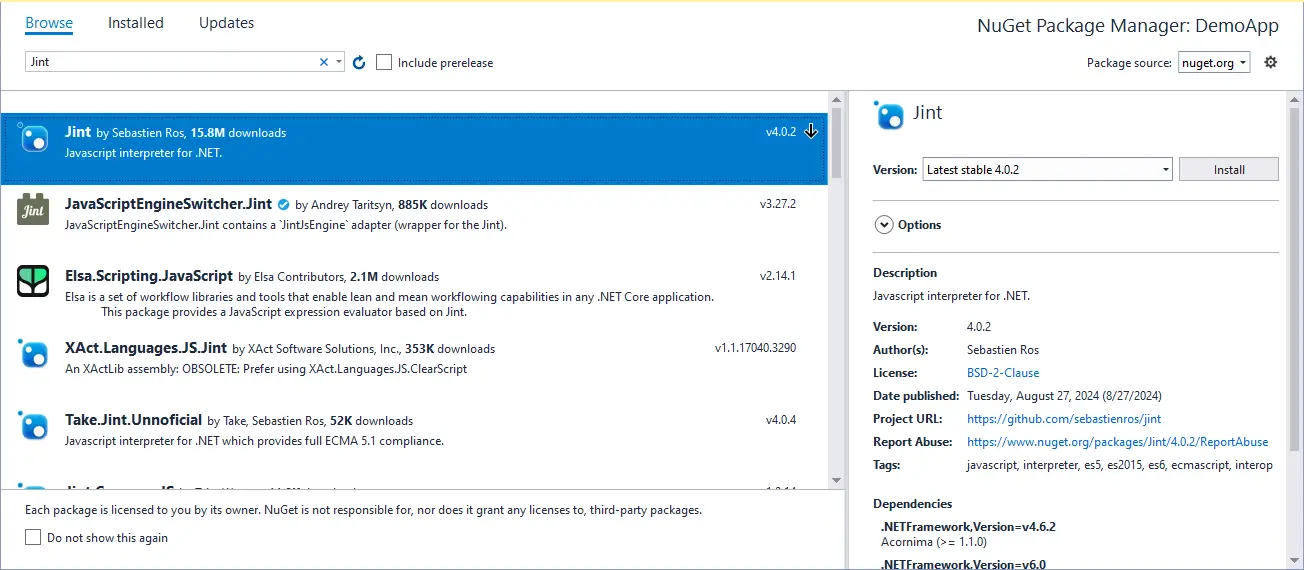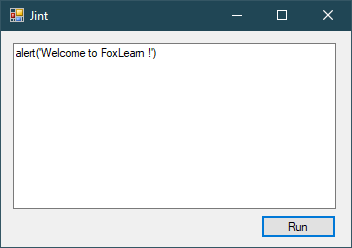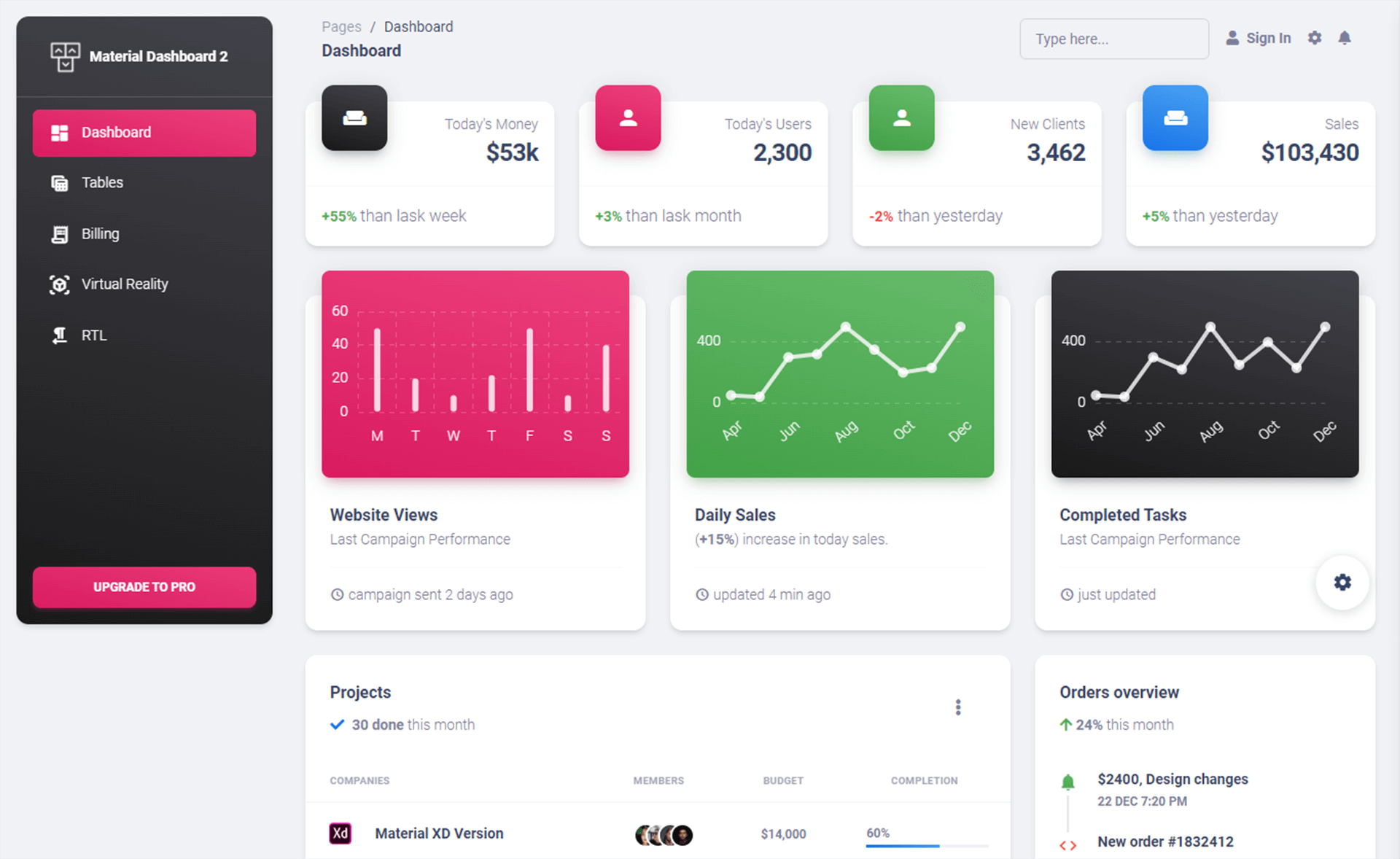How to implement Jint in C#
By Tan Lee Published on Sep 14, 2024 989
How to implement Jint in C# Windows Forms
Open Visual Studio, then Select File > New > Project. Choose Windows Forms App (.NET Framework) and click Next.
Next, Right-click on your project in Solution Explorer, then select Manage NuGet Packages. Search for Jint in the Browse tab and click Install to add it to your project.

Open the Form Designer (Form1.cs), then drag a TextBox onto your form. This will be used to input JavaScript code.
Drag a Button onto your form. This will execute the JavaScript code.

Double-click the Button to create an event handler in Form1.cs.
Add the necessary using directive for Jint at the top of the file.
using Jint; using System; using System.Windows.Forms;
Implement the event handler as shown below.
void Alert(string msg)
{
MessageBox.Show(msg, "Message", MessageBoxButtons.OK, MessageBoxIcon.Information);
}
// c# javascript interpreter jint
private void button1_Click(object sender, EventArgs e)
{
var js = new Engine().SetValue("alert", new Action<string>(Alert));
try
{
js.Execute(textBox1.Text);
}
catch (Jint.Runtime.JavaScriptException ex)
{
MessageBox.Show(ex.Message, "Message", MessageBoxButtons.OK, MessageBoxIcon.Error);
}
}If you want to allow access to .NET classes and assemblies
You can enable a Jint engine instance to access .NET classes by configuring the engine.
var js = new Engine(cfg => cfg.AllowClr());
You can also get returned value from function of JavaScript in C#
To retrieve a value from JavaScript to C# using Jint, you can use the GetValue method of the Engine class. Provide the name of the JavaScript function as the first argument. This returns a Jint.Native.JsValue object, which you should store in a variable.
To get the actual value, invoke the Invoke method on this variable. You can pass values from C# to JavaScript if needed, but it's not required; simply calling Invoke() will suffice.
// This function return the result of the numbers
function add(a, b) {
return a + b;
}You should modify your c# code as shown below.
js.Execute(textBox1.Text).GetValue("add");
var result = js.Invoke(3, 5) ;When you click the Button, a message box should display Result: 8.
You can adjust the timezone for the Jint engine in C# by specifying the timezone as an argument when configuring the Engine instance.
For example:
TimeZoneInfo tz = TimeZoneInfo.FindSystemTimeZoneById("Pacific Standard Time");
var js = new Engine(cfg => cfg.LocalTimeZone(tz));
js.Execute("new Date().toString()");
// Or other LocalTimeZone
TimeZoneInfo tz = TimeZoneInfo.FindSystemTimeZoneById("Eastern Standard Time");
var js = new Engine(cfg => cfg.LocalTimeZone(tz));
js.Execute("new Date().toString()");Jint is a JavaScript interpreter for .NET that offers full ECMA 5.1 compliance. It runs on any .NET platform without generating .NET bytecode or using the Dynamic Language Runtime (DLR), making it efficient for executing relatively small scripts.
This is a simple way to integrate Jint into your Windows Forms application.





